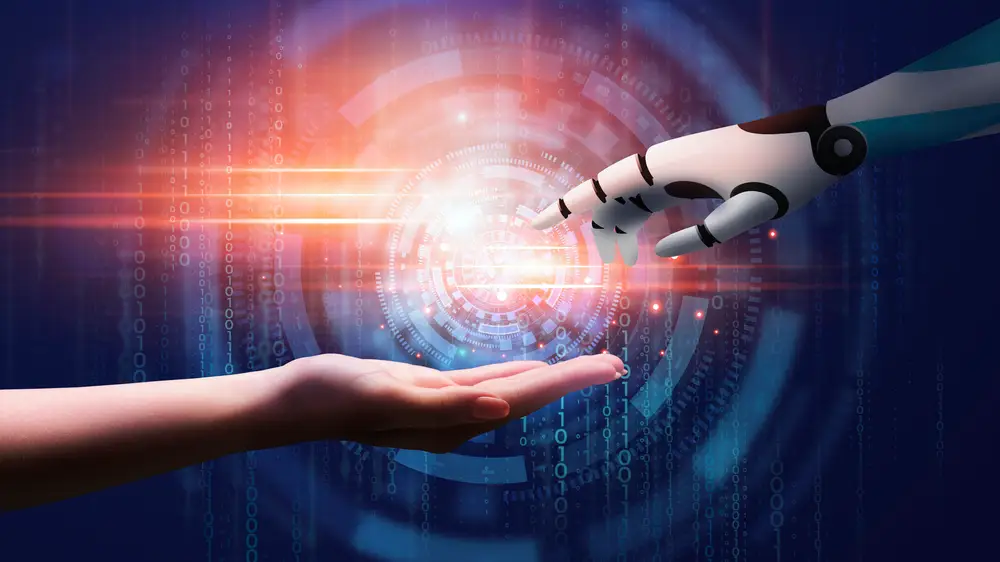Artificial Intelligence (AI) has rapidly evolved from a futuristic concept to a tangible actor driving significant advancements across various sectors. Among the most impactful areas are healthcare and smart living, where AI innovations are transforming lives for the better. This narrative of technological progress often mirrors the visionary predictions found in science fiction, particularly in the works of Isaac Asimov, who foresaw many of these developments.
Tech for Good: AI Innovations in Health Care
Medical Imaging
In the realm of health and care, AI is revolutionising how we diagnose, treat, and manage diseases. One of the most notable innovations is the use of AI in medical imaging. Advanced algorithms can now analyse medical images with remarkable accuracy, often surpassing human capabilities. For instance, AI systems can detect early signs of diseases such as cancer, enabling timely intervention and significantly improving patient outcomes. For example, AI systems can also quickly analyse CT scans of stroke patients to identify blockages or bleeding in the brain, enabling faster intervention and potentially saving lives. This technology is akin to the diagnostic tools imagined in Asimov’s novels, where machines could diagnose and treat ailments with precision and efficiency.
Moreover, AI is being used to improve the quality of medical images. Techniques such as image reconstruction and enhancement are being applied to produce clearer and more detailed images. This is especially important in modalities like MRI and CT scans, where high-quality images are crucial for accurate diagnosis. AI algorithms can reduce noise and artifacts in images, making it easier for radiologists to interpret them and make informed decisions.
Preventive Care
AI-powered predictive analytics are transforming preventive care. By analyzing vast amounts of data from electronic health records, wearable devices, and genetic information, AI can identify individuals at risk of developing certain conditions. This proactive approach allows for personalized preventive measures, reducing the incidence of chronic diseases and enhancing overall public health. This is also especially true for tailored treatment planning, where AI can help doctors develop tailored treatment plans that are specific to each patient’s condition. Asimov’s stories often depicted societies where technology played a crucial role in maintaining health and well-being, a vision that is increasingly becoming a reality.
Companionship and Support
In the field of elderly care, AI is making significant strides in enhancing the quality of life for seniors. AI-driven robots and virtual assistants can provide companionship and support to the elderly. This helps them with daily tasks and ensuring their safety. These intelligent systems can monitor vital signs, remind patients to take their medications, and even detect falls, alerting caregivers in real-time. This level of care and attention is reminiscent of the robotic companions in Asimov’s The Bicentennial Man. Here robots were integral to human life, offering both practical assistance and emotional support. This might be a bit futuristic, but thinking of a steadily ageing population, AI-robotics might be the solution to the shortage of caregivers worldwide.
Tech for Good: AI Innovations in Smart Living
Smart living, another area profoundly impacted by AI, includes a wide range of applications designed to make our daily lives more convenient, efficient, and sustainable. Smart homes equipped with AI-driven systems can learn and adapt to the preferences of their inhabitants. This optimizes energy usage, enhancing security, and providing personalized experiences. For example, smart thermostats can adjust the temperature based on the occupants’ habits. On the other hand, AI-powered security systems can recognize faces and detect unusual activities, ensuring a safe living environment.
Urban Planning and Development
AI is also a driving force in urban planning and development. Smart cities leverage AI to manage resources more efficiently, reduce traffic congestion, and improve public services. This is made possible by analyzing data from various sources. AI can optimize public transportation routes, predict maintenance needs for infrastructure, and even manage waste more effectively. This holistic approach to urban living aligns with Asimov’s vision of technologically advanced societies where intelligent systems seamlessly integrate into everyday life, enhancing the quality of living for all.
Of course, the integration of AI in our lives also raises important ethical considerations, much like the dilemmas explored in Asimov’s works. Issues such as data privacy, the potential for bias in AI algorithms, and the need for human oversight are critical. They ensure that these technologies are used responsibly and equitably. Asimov’s famous Three Laws of Robotics highlight the importance of ethical guidelines in the development and deployment of intelligent systems.
A principle that remains relevant as we navigate the complexities of AI integration. Just as Asimov envisioned, the future of AI holds immense potential for creating a better, more connected world, where technology and humanity coexist harmoniously, but we must be sure that AI will serve the greater good. Without regulation, AI could exacerbate inequalities, create biases, and pose security risks. International standards can promote fairness, transparency, and accountability, ensuring AI benefits all of society. This balance is essential for sustainable and equitable technological progress.

 Exploring the Latest Social Media Trends and How to Use Them
Exploring the Latest Social Media Trends and How to Use Them 10 Hidden iPhone Features You Didn’t Know Existed
10 Hidden iPhone Features You Didn’t Know Existed